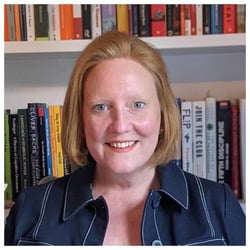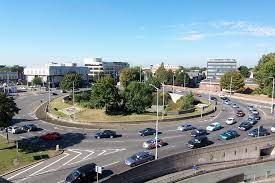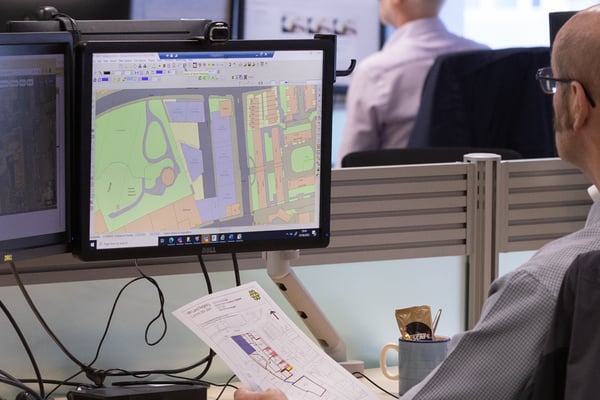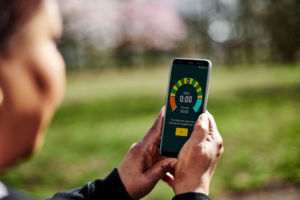The future of Local Government services
The roller-coaster ride isn't over. After a year of accelerated digitalisation, local governments are only at the beginning of reshaping existing services to user demand. What impact has the pandemic had on the future of local government services?
 "Our vision for service design is ultimately to reduce complexity," says Tariq Khan, Chief Digital & Information Officer at the London Borough of Camden. "What I think we need to look at is making sure we deliver a consistently positive and interwoven experience across both online and offline touchpoints - because citizens don't just use one channel."
"Our vision for service design is ultimately to reduce complexity," says Tariq Khan, Chief Digital & Information Officer at the London Borough of Camden. "What I think we need to look at is making sure we deliver a consistently positive and interwoven experience across both online and offline touchpoints - because citizens don't just use one channel."
Tariq was speaking at the opening session of the Local Government stream at this morning of GovX Digital, the UK's largest public sector transformation conference running until 26th May.
He explained that at Camden, his team were trying to look at the whole worldview of how residents interacted with the council, and looking for technology to complement the human experience rather than replacing it.
Seizing Digital Opportunities
"What Covid has done has illustrated that while we may all have been in the same storm, we weren't in the same boat," Tariq noted. "It's really shone a light on the digital divide. When we're delivering all these digital services we have to factor in that people have different levels of access to technology and to broadband."
Despite the stark reminder of inequality, Tariq observes a number of opportunities for local government that have arisen out of the rapid acceleration of digitalisation across UK society as the country locked down - such as the resurgence of QR codes, and leverage of data.
"It used to be seen as this weird fringe thing happening in Japan and South Korea, but actually we're now seeing it as a cheap and easy way to bridge the online-offline gap," he said. "Another opportunity comes from data, which is the great enabler. At Camden we've got 600 lines of business and that means we have a huge intersection between different kinds of interactions - so if we could harness the power of data in a transparent and ethical way, then I think there's some really cool applications specifically for early intervention and prevention within our communities."
He was part of a plenary panel discussing what the 'Future of Local Government Services' would look like, alongside Dr Deborah Smart the Corporate Director for Digital & Change at Dorset Council, Sandra Taylor the Assistant Director of IT and Digital at Worcestershire County Council, and Glen Ocskó the Head of Local Government at Made Tech.
🎤 All the panel discussions from GovX Digital 2021...
... are available to watch for free. ✌️
 "Our vision for service delivery is to push forward with an inclusive, community-centred approach to change, which is what we've set out for ourselves as a new council," said Deborah.
"Our vision for service delivery is to push forward with an inclusive, community-centred approach to change, which is what we've set out for ourselves as a new council," said Deborah.
Dorset Council is a unitary authority formed in 2019 from the merger of five district councils with the previous county council.
"Our transformation programme, which was focused on bringing the councils together and saving some money has now been accelerated three-fold," she explained. "We're now talking about trying to save £10m a year rather than the originally planned £3m, while designing really good new services for customers."
The effectiveness of Dorset Council's Covid response, where the community has been allowed to get involved and the council "hasn't stepped on their toes", is viewed as a model for better understanding what citizens want longer term.
"We've helped provide some of the leadership, but not got in the way of the actual doing," continued Deborah. "I think we can use this approach in future to shape our service delivery, particularly in people services, as we work across the districts to form that one new Dorset Council service."
Outcome-based delivery
 "When I was in local government, whenever you wanted to deliver something digital it was 'Okay, let's find a platform and then crowbar our needs around that', instead of just stepping back and thinking, 'what do we want to achieve for ourselves'," says Made Tech's Glen. "But now local government doesn't have the time, money and people to do that anymore. It really is just a case of identifying what we want to achieve, and how can we build or buy the systems, and develop them in a way that allows us to focus on what we're trying to achieve."
"When I was in local government, whenever you wanted to deliver something digital it was 'Okay, let's find a platform and then crowbar our needs around that', instead of just stepping back and thinking, 'what do we want to achieve for ourselves'," says Made Tech's Glen. "But now local government doesn't have the time, money and people to do that anymore. It really is just a case of identifying what we want to achieve, and how can we build or buy the systems, and develop them in a way that allows us to focus on what we're trying to achieve."
"We should be building things that can be rolled-out in an hour, and then shared with other partners as well. There's no reason why we don't build things and then share it with other councils. I don't like the idea that a small number of big, big suppliers are charging absolutely everyone for the same tools over and over again."
 "We've been developing our vision for what good looks like when it comes to customer service delivery," says Sandra from Worcestershire County Council. "It's about providing simple access across channels and our customers being dealt with actively by staff who know what they're talking about. It's about completing transactions at the point of first contact, and really delivering value."
"We've been developing our vision for what good looks like when it comes to customer service delivery," says Sandra from Worcestershire County Council. "It's about providing simple access across channels and our customers being dealt with actively by staff who know what they're talking about. It's about completing transactions at the point of first contact, and really delivering value."
This requires a high degree of clarity - what services are being delivered, when, and to what level ("something of a bugbear") - but also keeping abreast of changing customer service demands.
"Even before Covid, we were moving from physical phone towards digital services," she continues. "Our customers don't expect to have to navigate through mazes to get to our services - they just expect us to know about previous contacts and their circumstances."






